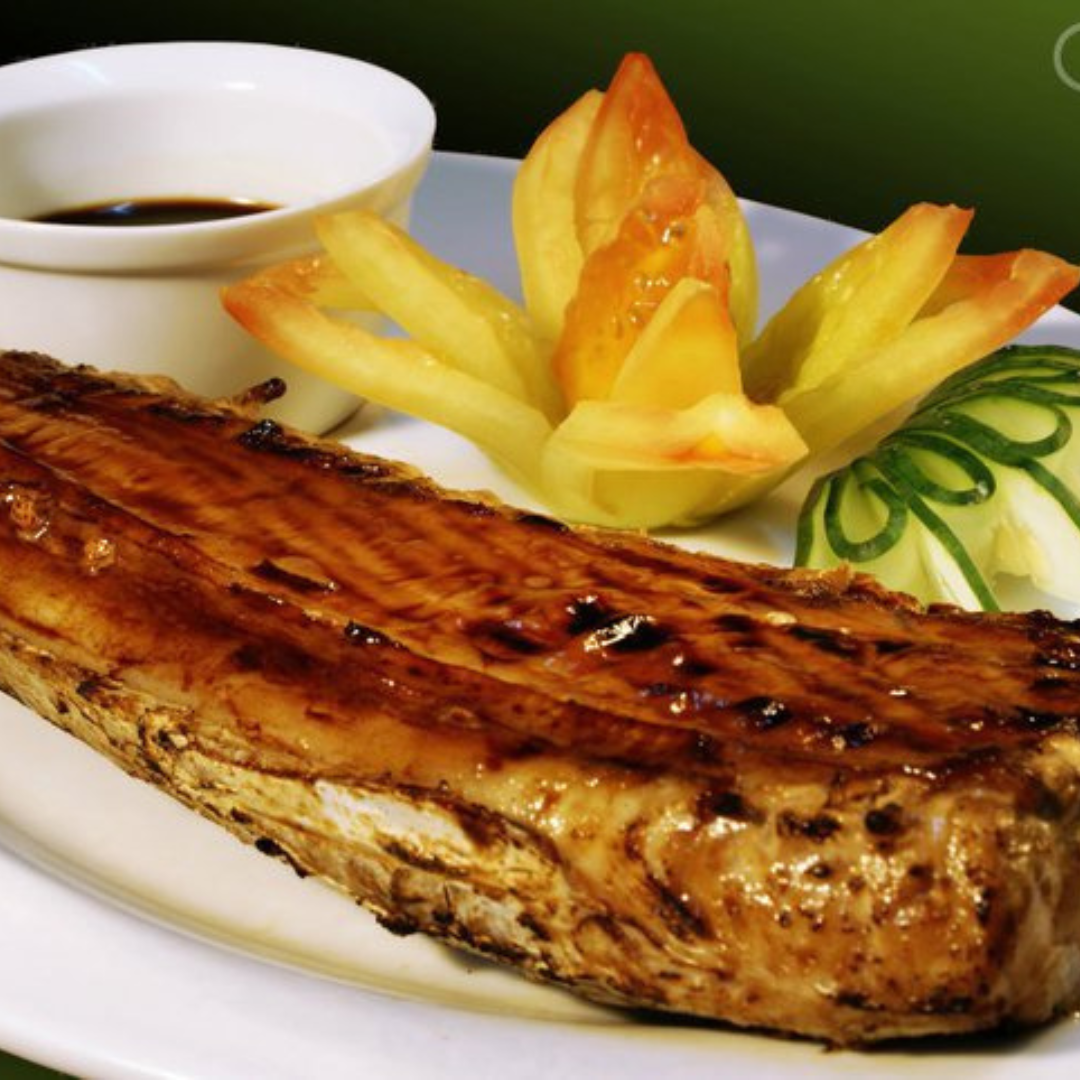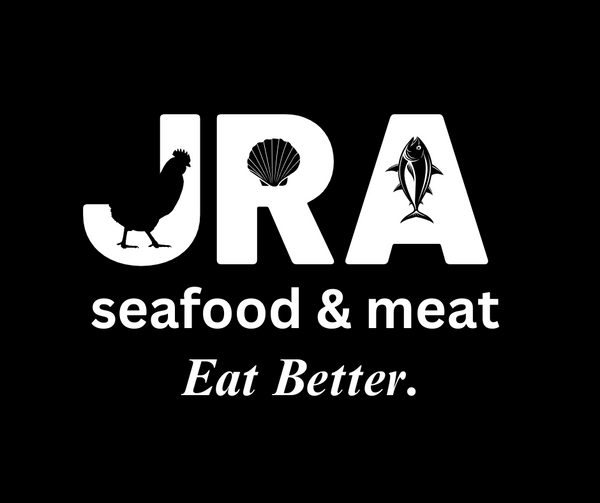
The Seafood Protocol: An Evidence-Based Approach to Enhance Fitness, Health and Aesthetics
Share

Juvelyn Repole-Amoguez
Co-owner
JRA Seafood
The Seafood Protocol is not just a diet plan—it's an evidence-based strategy designed to improve overall health, fitness, and aesthetics. For the past five years, I've utilized this regimen to maintain a lean physique and youthful skin, avoiding pharmaceuticals and surgical procedures. Now, at the age of 40, I can attest to its effectiveness.
1. Salmon for Heart, Brain, Joints and Skin Health
Each week, aim to consume 1kg of salmon, either as salmon belly or fillet. This amount ensures an adequate intake of Astaxanthin, a powerful antioxidant found in salmon that enhances skin elasticity and youthfulness. Astaxanthin also contributes to salmon’s vibrant orange color and has been studied for its skin health benefits (Source: Journal of Dermatological Science, 2009). Moreover, this regimen provides at least 5g of Omega-3 fatty acids, essential for heart, brain, and skin health (Source: American Heart Association).

2. The Importance of Scallop Meat
As we age, our taurine levels decline, affecting overall vigor and fitness. Scallop meat is an excellent source of taurine, rarely found in plants and only minimally in meats like beef. Consuming 1kg of scallop meat weekly meets the required 8g of taurine, which is essential for maintaining energy levels as we age (Source: Amino Acids, 2012).
3. Balanced Consumption of Red Meats, Eggs and Poultry
Incorporating red meat, poultry, organs, and eggs into your diet is healthy, but only when balanced with seafood. Meats and legumes are rich in Omega-6, which can promote inflammation if not offset by Omega-3-rich seafood like salmon. Aim for a 2:1 ratio of seafood to red meat to mitigate inflammatory effects (Source: Nutrition Journal, 2016).
4. Choosing Healthy Oils
Avoid refined vegetable oils such as canola, soy, sunflower, and corn oil, which can have long-term negative effects on liver health and insulin regulation. Instead, opt for coconut or lauric oil for frying and use extra virgin olive oil for salads. Be cautious of olive oils in transparent bottles, as they might be adulterated (Source: European Journal of Nutrition, 2018). Cook your seafood. Minimize dining out to minimize your exposure in these unhealthy oils.
5. Omega-3 Supplementation
Travel and dining out can disrupt your Omega-3 intake, as many restaurants use vegetable oils. To ensure you're getting enough, consider IFOS-certified Omega-3 supplements, which avoid the risk of rancidity and potential heart issues associated with poor-quality supplements (Source: Journal of the American College of Cardiology, 2020).
6. Regular Exercise
You don't necessarily need a gym membership to stay active. Daily routines like walking 10,000 steps, parking farther away, and taking the stairs can significantly improve your cardiovascular health and resilience (Source: American Heart Association).

7. Heavy Metal Detox
Varying your diet to include different seafood and meats can help manage the load of heavy metals, such as arsenic found in rice and other toxins in various foods. Regular exercise and sweating, especially under the morning sun, can help your body naturally detoxify. Garlic supplements are also beneficial for their chelating properties (Source: Journal of Medicinal Food, 2013).

Disclaimer:
This information is based on my research from published medical journals and meta-analyses. I am not a medical doctor, and this information should not be used for self-diagnosis or as a substitute for professional medical advice. Always consult a physician before making any significant changes to your health regimen.
By adhering to the Seafood Protocol, you can leverage the natural benefits of JRA Seafood products to meet your health and fitness goals effectively.
